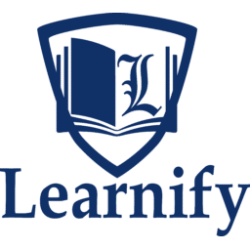Introduction
As global demand for seafood rises, sustainable aquaculture is crucial to meet this demand while protecting ecosystems and reducing resource use. This course covers the principles and practices of sustainable aquaculture, including site selection, water quality management, feed optimization, and fish health. Through interactive workshops, field activities, and case studies, participants will learn techniques to enhance sustainability, improve productivity, and reduce the environmental impact of aquaculture operations.
Objectives
By the end of this course, participants will:
- Understand the principles of sustainable aquaculture and its importance.
- Gain knowledge of best practices for site selection, water management, and feed efficiency.
- Learn strategies for fish health, welfare, and disease prevention.
- Develop skills for minimizing environmental impacts and resource use.
- Create a tailored action plan to implement sustainable practices in their aquaculture operations.
Who Should Attend?
This course is designed for:
- Aquaculture producers, farm managers, and fishery operators interested in sustainable practices.
- Marine biologists, environmental scientists, and aquaculture consultants.
- Policy advisors, regulators, and environmental officers in fisheries and aquaculture.
- Researchers, educators, and students in marine biology, aquaculture, or environmental science.
- Anyone seeking to enhance the sustainability of aquaculture practices in their operations.
Day 1: Introduction to Sustainable Aquaculture and Site Selection
Overview:
The first day covers the foundations of sustainable aquaculture, including its principles, environmental impact, and importance. Participants will also explore best practices for site selection, which is critical for minimizing environmental impacts and ensuring sustainable production.
- Session 1: Principles of Sustainable Aquaculture: Productivity, Environment, and Welfare
- Session 2: Environmental Impacts and Benefits of Sustainable Aquaculture
- Session 3: Site Selection: Key Factors for Sustainability (Water Quality, Ecosystems, Proximity to Markets)
- Session 4: Workshop: Assessing Site Suitability for Sustainable Aquaculture
Key Takeaways:
- Understanding of sustainable aquaculture principles.
- Knowledge of environmental and site-specific factors impacting aquaculture sustainability.
- Skills to assess and select suitable sites for sustainable aquaculture.
Day 2: Water Quality Management and Ecosystem Health
Overview:
Day two focuses on water quality management, a cornerstone of sustainable aquaculture. Participants will learn techniques for maintaining optimal water conditions, reducing pollution, and managing waste to protect surrounding ecosystems.
- Session 1: Water Quality Parameters: pH, Dissolved Oxygen, Temperature, and Salinity
- Session 2: Managing Water Quality: Filtration, Aeration, and Recirculating Aquaculture Systems (RAS)
- Session 3: Waste Management: Reducing Effluent and Eutrophication Impacts
- Session 4: Workshop: Monitoring and Adjusting Water Quality in Aquaculture
Key Takeaways:
- Knowledge of water quality parameters essential for fish health.
- Techniques for managing water quality and minimizing waste.
- Practical skills in monitoring and maintaining optimal water conditions.
Day 3: Feed Optimization and Sustainable Nutrition
Overview:
This day covers feed management and nutrition, with an emphasis on optimizing feed for growth, reducing waste, and selecting sustainable feed ingredients. Participants will explore how to balance feed efficiency with sustainability goals.
- Session 1: Fundamentals of Fish Nutrition and Feed Formulation
- Session 2: Sustainable Feed Ingredients: Alternatives to Fishmeal and Fish Oil
- Session 3: Improving Feed Efficiency and Reducing Feed-Related Waste
- Session 4: Workshop: Designing a Sustainable Feed Plan for Aquaculture
Key Takeaways:
- Understanding of sustainable feed options and nutritional needs in aquaculture.
- Techniques for improving feed efficiency and reducing waste.
- Skills in designing a feed plan that supports both productivity and sustainability.
Day 4: Fish Health, Welfare, and Disease Management
Overview:
Day four focuses on fish health and welfare, including strategies for disease prevention, biosecurity, and humane handling practices. Participants will learn techniques to reduce disease risks and improve overall fish welfare in aquaculture systems.
- Session 1: Fish Health and Welfare: Best Practices in Aquaculture
- Session 2: Disease Prevention and Management: Vaccination, Quarantine, and Biosecurity
- Session 3: Stress Reduction and Humane Handling in Aquaculture
- Session 4: Workshop: Developing a Health and Biosecurity Plan for Sustainable Aquaculture
Key Takeaways:
- Knowledge of best practices for fish health, welfare, and disease prevention.
- Techniques for implementing biosecurity measures and humane handling.
- Practical experience in creating a biosecurity and health management plan.
Day 5: Climate Resilience, Policy, and Implementing a Sustainability Plan
Overview:
The final day addresses climate resilience, policy, and financial incentives for sustainable aquaculture. Participants will develop a comprehensive action plan to implement sustainable practices in their aquaculture operations.
- Session 1: Building Climate Resilience in Aquaculture: Adapting to Climate Variability
- Session 2: Policy and Regulations Supporting Sustainable Aquaculture
- Session 3: Funding, Incentives, and Market Opportunities for Sustainable Products
- Session 4: Final Workshop: Creating a Comprehensive Sustainable Aquaculture Action Plan
Key Takeaways:
- Understanding of climate resilience strategies and adaptive practices.
- Awareness of policies, regulations, and incentives supporting sustainable aquaculture.
- A customized action plan for implementing sustainable practices in aquaculture operations.


